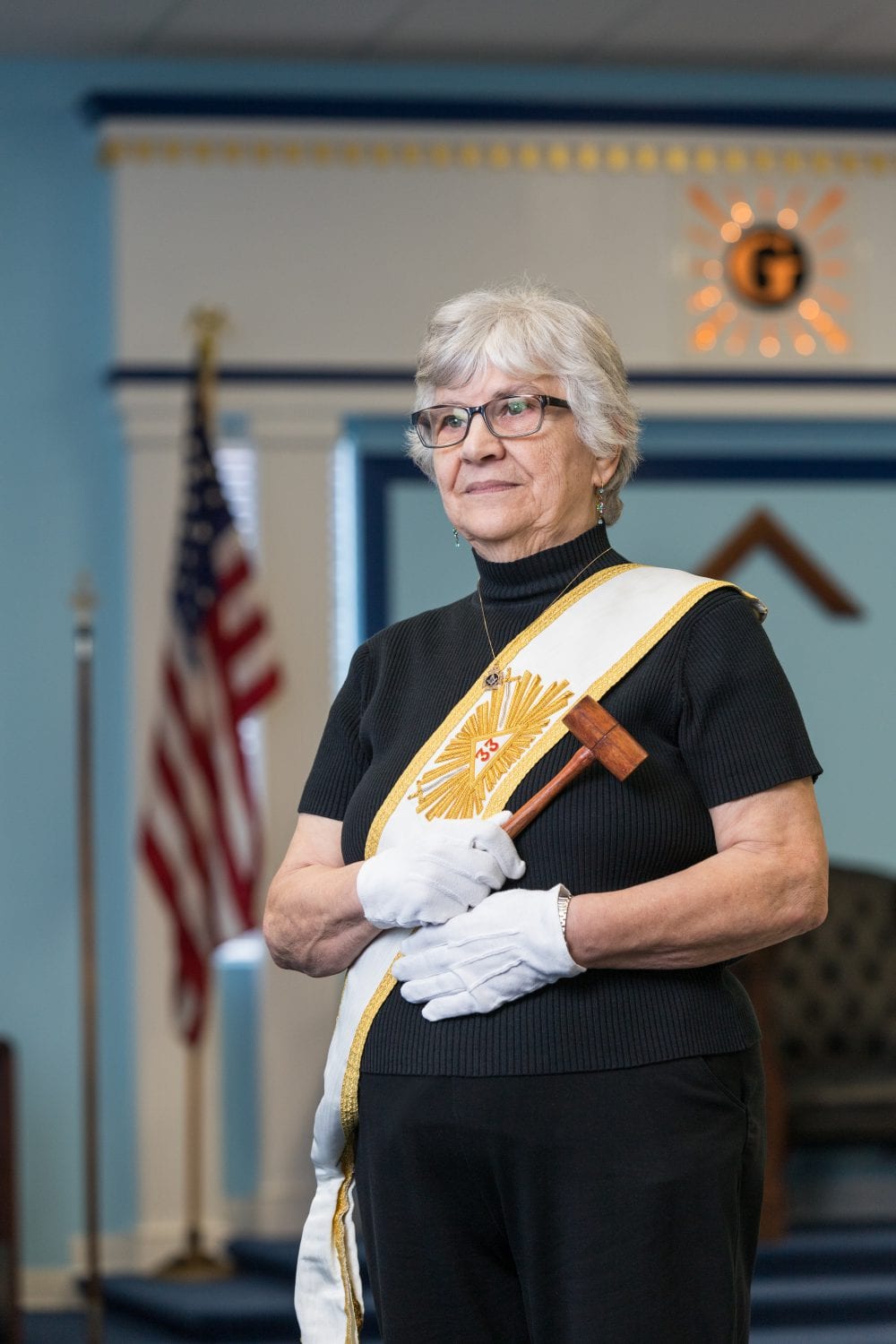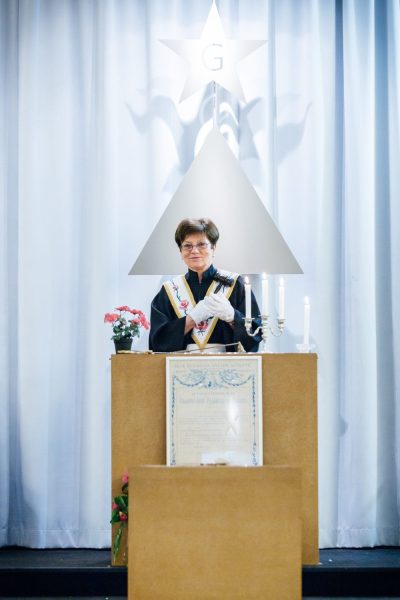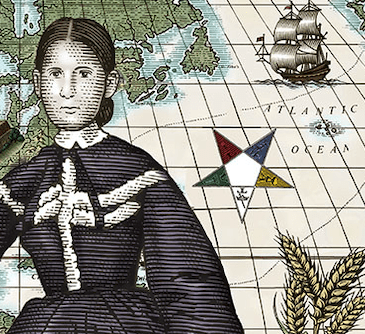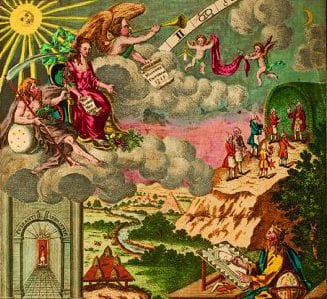
Women of Freemasonry – Anne-Marie Moody
Women have been practicing Freemasonry for centuries.
Meet four women who are leading and building feminine
and mixed lodges today.

“The Masonic spirit is, above all, humanistic. All Freemasons must band together to share our humanistic ideas and change things that are not going well,” Maryse Fauville explains. As the grand master of the Women’s Grand Lodge of Belgium, she participates in the European Masonic Alliance, which meets several times a year with the European Commission on a number of ethical questions.
But originally, Maryse became a Mason for more personal reasons. “I wanted to work on myself. In order to improve myself, I joined a group where inner reflection was a part of the process. I thought that being with other open-minded women would help me to better understand others and work together for the betterment of humanity.”
And, her lodge’s culture does just that. “We work on ourselves to reject ready-made ideas, reflect, and challenge ourselves. We want to be open to the opinions of others. Opening oneself to others includes the desire to improve society and engage in social action.”
What made you want to become a Mason?
I wanted to work on myself. In order to improve myself, I joined a group where inner reflection was a part of the process. I thought being with other open-minded women would help me to better understand others and work together for the betterment of humanity.
How would you describe the culture of your lodge?
Feminine, non-dogmatic liberal obedience, very concerned with the defense and protection of human rights and with emphasis on women’s rights. We are free and responsible women rejecting all dogma, without convention or shackles.
We work on ourselves to reject ready-made ideas, reflect, and challenge ourselves. We want to be open to the opinions of others. Opening oneself to others includes the desire to improve society and engage in some social action.
Our motto is: “Freedom, equality, fraternity.” We apply it in two ways: by trying to convey our values in political and decision-making arenas; and 2) by being ourselves, a social movement on the ground. Becoming a Freemason is a commitment. It is the commitment to work for the progress of humanity.
Do Masons have a responsibility to make the world a better place?
The Masonic spirit is, above all, humanistic. All Freemasons in the world must band together to transmit our humanistic ideas and change things that are not going well. We can do this either through our personal influence in the civil and political world, or through Masonic organizations. We may express ourselves in the political arenas, however we avoid talking about politics per se in the lodges.
An example: the European Masonic Alliance meets several times a year with the European Commission on a number of ethical questions. It is an important voice among the religious institutions that also meet with the European Commission.
Where do you want to see Masonry go in the future?
The challenges of tomorrow are immense: fighting for the survival of our planet, limiting climate change; fighting inequality, defending human rights, and accepting — with more humanity — immigrants, because immigration will be inevitable. We could also develop an ethical framework to the new technologies and the speed-of-light progress changing humankind. I would love to see Masonry of the future pursue these objectives and become more influential with the world’s decision-makers to make a better, more humane world for all.
PHOTO CREDIT: Bea Uhart

Women have been practicing Freemasonry for centuries.
Meet four women who are leading and building feminine
and mixed lodges today.

While the women’s movement offered women more political power, Eastern Star
broadened opportunities for women across the country.

On aprons and teapots, in the first degrees and the virtues and lessons of Freemasonry, feminine symbols are threaded into the very fabric of Freemasonry.